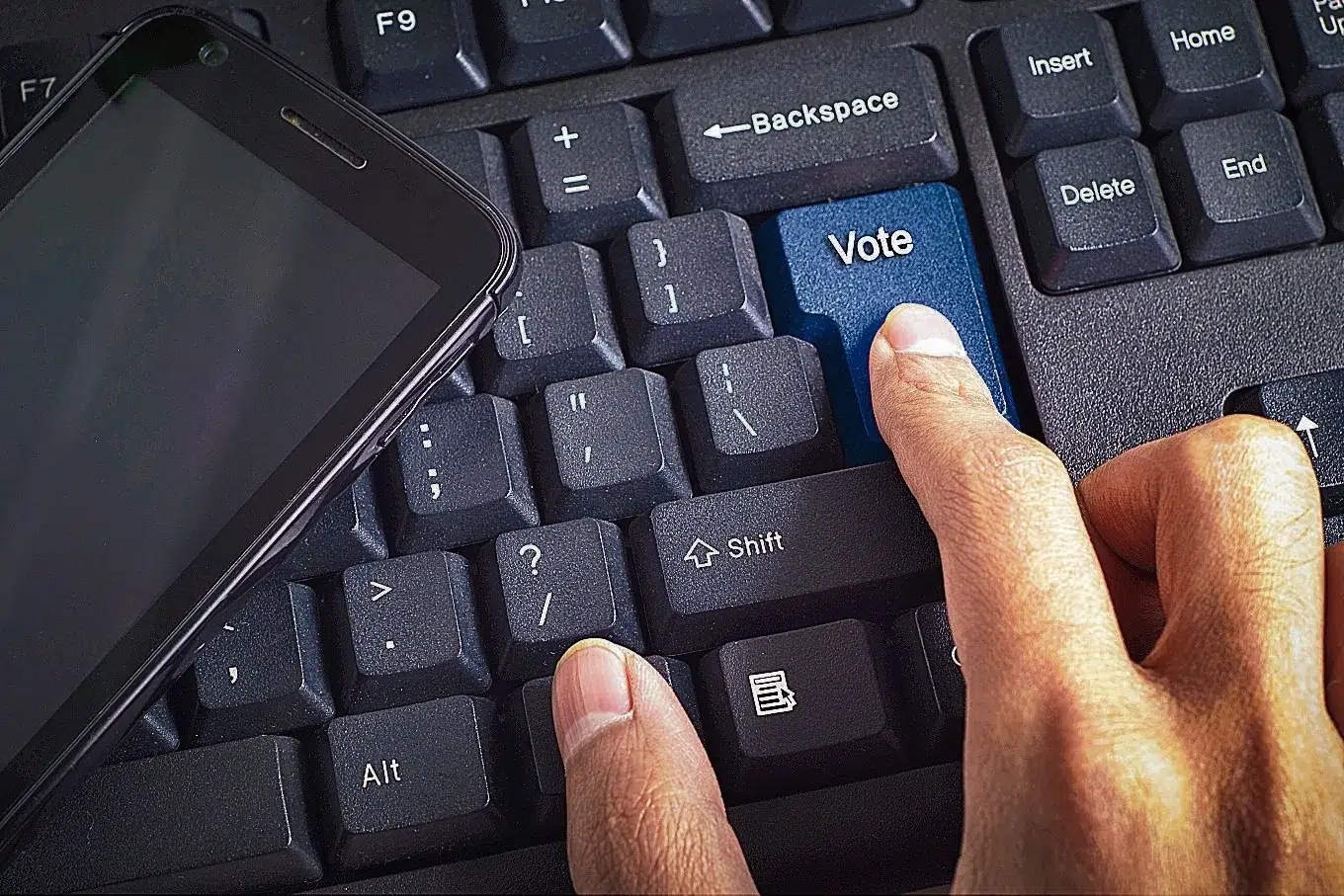Malcolm Cartagena, the electoral trainer, warned yesterday that electronic voting by the Internet is one of the most insecure modalities for an election at a global level and, therefore, one of the least used.
During the interview, Frente, a Frente of Telecorporación Salvadoreña (TCS), Cartagena, explained that no election is exempt from being violated, but electronic voting is even riskier.
“An election can be violated, whether it is on the Internet or paper. The difference is that on paper, you need the participation of several people who agree; on the Internet, all you need is a hacker to ruin the whole election,” he said.
The specialist indicated that, up to now, the ruling party and the Salvadoran government have yet to have good experiences with applications that require online identification.
He cited the internal elections of Nuevas Ideas, overshadowed by allegations of fraud via identity theft, and the case of the electronic wallet Chivo, designed to encourage the use of bitcoin in El Salvador through the delivery of $30.
After launching the Chivo Wallet, reports of electronic crimes in El Salvador skyrocketed, totaling 6,070 cases,according to the Attorney General’s Office (FGR, for its acronym in Spanish).
“Solo basta un hacker para arruinar toda la elección”, advierte especialista electoral Malcolm Cartagena
Malcolm Cartagena, formador electoral, advirtió ayer que el voto electrónico por internet es una de las modalidades más inseguras para una elección a nivel global y, por ende, una de las menos utilizadas.
Durante la entrevista Frente a Frente, de Telecorporación Salvadoreña (TCS), Cartagena explicó que ninguna elección está exenta de ser vulnerada, pero la votación electrónica es todavía más riesgosa.
“Una elección puede ser vulnerada, ya sea en internet o en papel. La diferencia es que en papel se necesita el concurso de varias personas que estén de acuerdo; mientras que por internet, lo único que se necesita es un hacker para arruinar toda la elección”, indicó.
El especialista indicó que, hasta ahora, el partido oficialista y el Gobierno salvadoreño no han tenido buenas experiencias con aplicaciones que requieren la identificación en línea.
Citó las elecciones internas de Nuevas Ideas, opacadas por señalamientos de fraude vía suplantación de identidad, y el caso de la billetera electrónica Chivo, destinada a incentivar el uso del bitcóin en El Salvador a través de la entrega de $30.
Tras el lanzamiento de la Chivo Wallet, las denuncias de delitos electrónicos se dispararon en El Salvador, sumando 6,070 casos según la Fiscalía General de la República (FGR).

